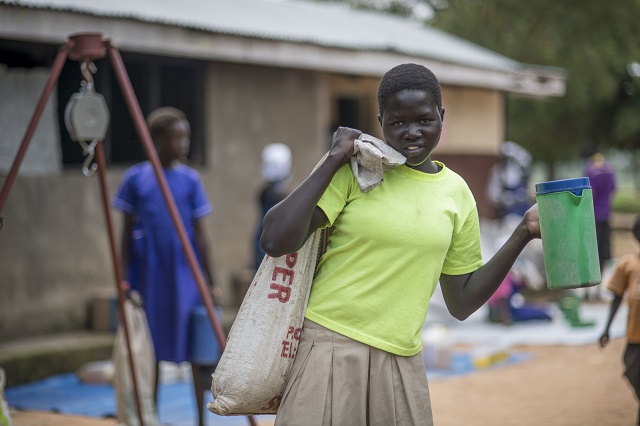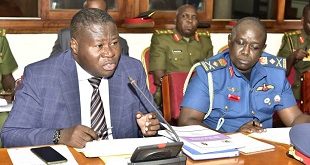
Moroto, Uganda | THE INDEPENDENT | A section of leaders in the Karamoja Sub-region has opposed the revival of Alternative Basic Education for Karamoja-ABEK.
The program was introduced by the government in 1998 for children aged between 6 and 18 years in pastoral communities. It started with 10 learning areas including livestock education, crop production, basic reading and writing among others which fit into the Karimojong way of life.
However, the program is on the verge of collapsing due to famine, insecurity and the failure of the Ministry of Education to pay facilitators. The district education officials have now appealed to the government to consider strengthening it to enable them to bring back to school, all the children who are still trapped up in the kraals.
Joyce Nakoya, the District Education Officer also the former ABEK programs Coordinator noted that residents had owned the initiative because the facilitators were picked from the community and trained to teach the children before transiting from kraal-based studies to formal schools.
She said the program should be revived as an alternative form of education for the children who are still trapped in the kraals. Nakoya allays fears that the program would sabotage the already existing system
However, the area leaders have opposed the appeal, saying that the government has injected money into formal schools whose classes are still empty because the parents have not been motivated to send their children to school.
Kotido District speaker Emmanuel Lodio said that they are advocating for compulsory education for all karimojong children for 15 years because the Alternative Basic Education for Karamoja will keep the region trapped backwards.
Lodio suggested that the government earmarks at least 200 billion shillings and identifies areas where schools are badly needed to enable learners to study through the formal education system. He said they are also advocating for technical schools to cater for those who may not be able to complete the cycle of education and the warriors who cannot join formal education.
He also expressed disappointment with the idea of teaching children in English at the nursery level and introducing them to the thematic curriculum at the lower primary level. He says the approach confuses learners.
Sammy Ogwel, the former Member of Parliament for Moroto municipality observed a need to strengthen compulsory boarding facilities in order to retain children at school. Ogwel said that boarding facilities would help strengthen girl-child education and protect them from being married off at a young age.
Ogwel proposed the introduction of water irrigation and agriculture-based lessons to schools so that they are able to manage food insecurity. He noted that a lot of water is wasted because the communities lack knowledge on how to harvest and put it to better use.
Nakapiripirit District Chairperson John Nangiro noted that they had proposed to the government to establish two modern well facilitated primary schools for every sub-county in order to enhance Universal Primary Education. He said that the schools must have enough teachers with free boarding facilities so that the learners do not think of going back to the kraals.
*****
URN
 The Independent Uganda: You get the Truth we Pay the Price
The Independent Uganda: You get the Truth we Pay the Price


